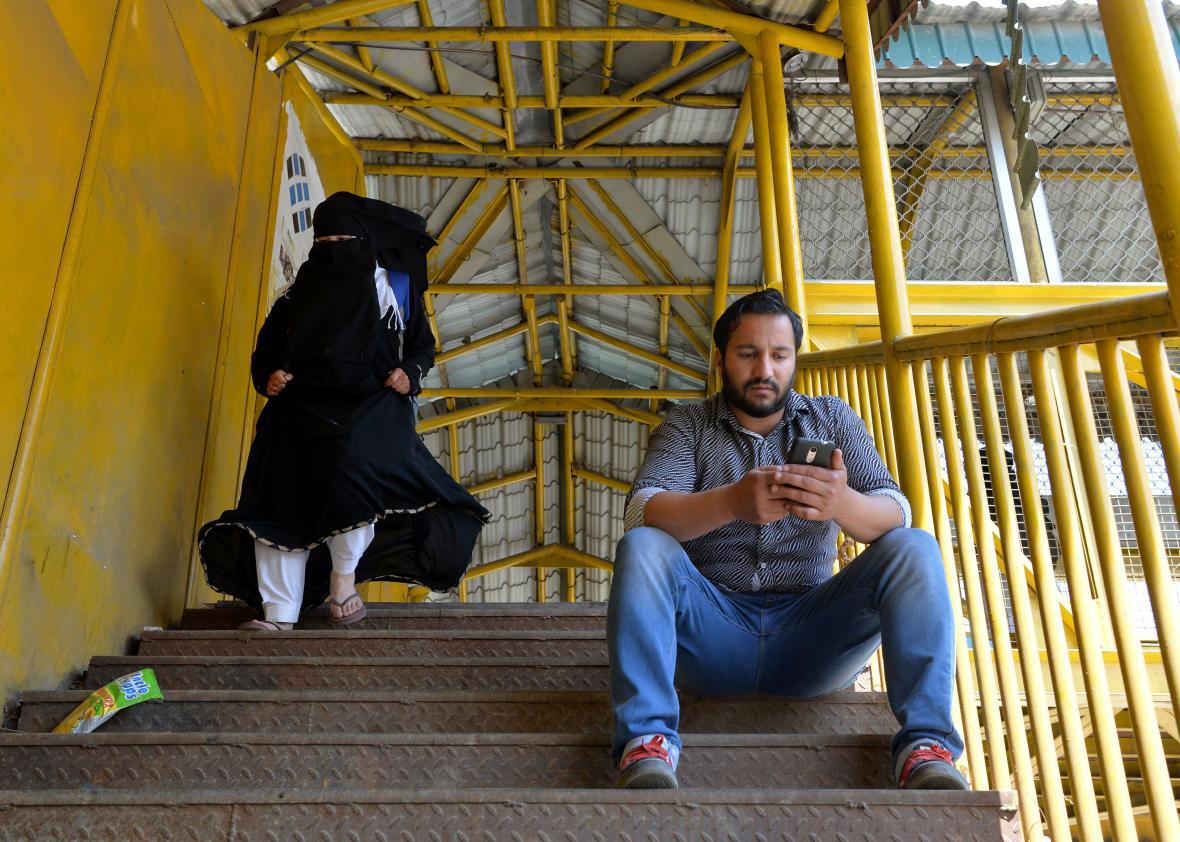Back in April, 22 social networks and apps—including Facebook, WhatsApp, and Twitter—were banned in Kashmir as videos surfaced showing Indian forces engage violently with civilians.
This wasn’t an isolated incident. On Thursday, Human Rights Watch issued a report criticizing repeated shutdowns of internet and telecommunication networks this year. These aren’t country-wide disconnections; they’re local or statewide disruptions of service. Human Rights Watch identified 20 internet blockages in January-May 2017 alone. Since 2012, 79 such incidents have been reported in 14 of the country’s 29 states.
According to Human Rights Watch, these shutdowns are intended to suppress criticism of the government and Indian Prime Minister Narendra Modi. The Indian government, on the other hand, claims that it sometimes has to suspend services because of its national security interests.
The report focuses on three instances in which government had imposed restrictions in order to stem protests taking place in the country. In June, the Maharashtra state government, which is controlled by India’s ruling Bharatiya Janata Party, temporarily shut down internet and mobile services as protests by farmers escalated in the area. Farmers were demonstrating in favor of debt forgiveness and fair prices for their produce
Human Rights Watch also noted that the government in the state of Jammu and Kashmir suspended communications in the area in June after a civilian was killed by security forces. Indian media earlier this month reported that authorities in Kashmir valley blocked access to these services after the separatist Kashmiri group, the Hurriyat Conference, called for statewide boycotts of businesses and schools in response to the killing.
“This was the fifth time the state government had suspended the mobile internet or broadband services in 2017 in a questionable attempt to prevent rumors from fueling violent clashes between government forces and street protesters,” Human Rights Watch said in a press release Thursday.
The report also discussed a similar incident in India’s most populous state, Uttar Pradesh, where the government proceeded to shut down internet services following protests by lower-caste Dalits.
David Kaye, the U.N. special apporteur on the promotion and protection of the right to freedom of opinion and expression, shared similar concerns in a report released earlier this month. He writes that these disconnections don’t just infringe on people’s right to free speech; they also hurt India’s thriving e-commerce market The Hindu reported in March that between 2014 and the end of 2015, internet shutdowns cost Indian businesses almost $1 billion.
Meanwhile, the country is in the midst of a campaign called “Digital India.” According to its website, the Digital India campaign is “a flagship programme of the Government of India with a vision to transform India into a digitally empowered society and knowledge economy.” Indian digital rights activist Mishi Choudhary wrote in a blog post in March that it is hard for the campaign to “get fully realized when state or local governments keep turning the Internet off.”
